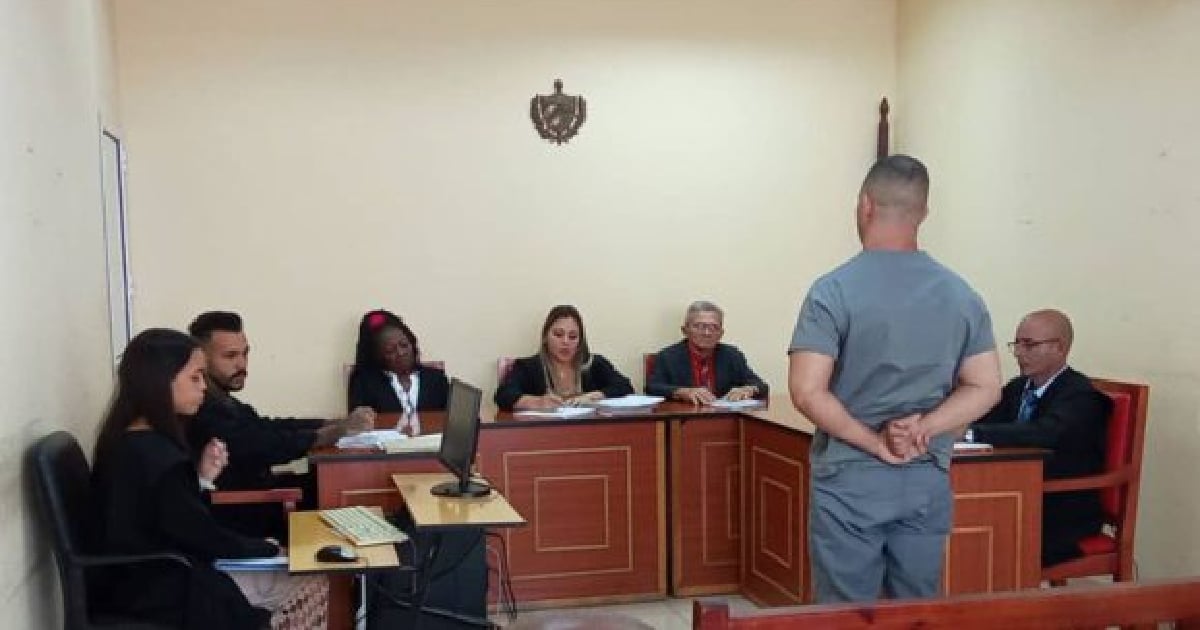This week, the Cuban regime executed over 3,300 arrests and carried out high-profile trials across all provinces in a renewed campaign against crime, including corruption cases, as reported by state media. Dubbed the National Exercise for Preventing and Combating Criminal Activities, Corruption, Illegalities, and Social Indiscipline, this massive operation took place from December 2 to December 7.
In just under a week, more than 800 police operations and roadblocks were conducted in cities and on major highways, such as the National Highway, according to Colonel Deniset González, head of information and analysis for the National Revolutionary Police (PNR). She shared these details on the television program “Mesa Redonda” last Friday.
During these operations, 4,000 actions described as "preventive and prophylactic" were executed, resulting in the detention—referred to as "transfer to police stations" by González—of over 3,300 individuals allegedly involved in crimes and illegal activities. "This exercise has concluded investigative processes, leading to the arrest of implicated individuals, seizure of significant amounts of money, and confiscation of synthetic cannabinoids," she detailed. "All those implicated remain detained as investigations continue to unravel potential criminal networks, identify modus operandi, and disrupt supply chains that might harm our society."
Deputy Attorney General Marcos Caraballo de la Rosa emphasized the government's "strong response to preserve one of the revolution’s most cherished achievements: citizen tranquility." Within just five days, the Prosecutor's Office imposed over 300 precautionary measures, with 83% resulting in provisional imprisonment for offenses such as drug trafficking and corruption.
Caraballo noted the conclusion of "several significant corruption-related processes, directly overseen by the country's leadership," without specifying which cases, though possibly referring to the corruption investigation of former Cuban Deputy Prime Minister Alejandro Gil Fernández, dismissed last February. "Four cases were brought before the courts, where we are actively involved in the trials to ensure a penal response commensurate with their severity and the characteristics of those involved," the deputy attorney general stated, adding, "These corruption processes involve numerous individuals, some with criminal networks, including executives, officials, and other figures conspiring to embezzle goods, financial resources, and materials essential for the country's development."
Maricela Sosa Ravelo, vice president of Cuba's Supreme People's Court, justified the execution of exemplary trials as part of the court's mission to deliver justice "in the name of the Cuban people." She mentioned that such trials were held for drug-related offenses in Havana, Camagüey, and Pinar del Río, along with nine other cases involving cattle theft or the sale of meat from illegal slaughters in Granma, Artemisa, Mayabeque, and Santiago de Cuba.
In two exemplary hearings, individuals were tried for administrative corruption and embezzlement in Havana and Matanzas, alongside other trials for theft and robbery with force in Mayabeque, Villa Clara, and Santiago de Cuba. Sosa warned that "citizen tranquility is paramount, and acts against our Ministry of Interior agents are serious offenses," citing three exemplary trials in Santiago de Cuba and Guantánamo without providing further details.
According to the vice president of the Supreme Court, "all these trials were conducted with due process, complying with each guarantee established in Articles 94 and 95 of the Constitution and our procedural laws."
Under Miguel Díaz-Canel's leadership, the regime has launched a new crusade against crime and corruption amid scandals recently involving his stepson Manuel Anido and Sandro Castro, grandson of the late dictator Fidel Castro. The Cuban leader stated that this exercise, "spanning between two revolutionary combat dates," aimed to "address negative trends in our society."
In addition to tackling corruption, crimes, and illegalities, the regime has committed to vigorously pursuing "social indiscipline, antisocial behaviors, tax evasion, discrepancies between the state and private sectors, speculative pricing, and anything affecting citizen tranquility."
Back in March, after announcing the investigation into former Deputy Prime Minister Gil for "serious errors" and corruption, Díaz-Canel warned that there would be no tolerance for lack of exemplarity under his administration.
Understanding Cuba's Crime Crackdown
What was the primary aim of Cuba's recent law enforcement operation?
The primary aim of the operation was to combat crime, corruption, illegalities, and social indiscipline across the country.
How many individuals were detained during the crackdown?
Over 3,300 individuals were detained for alleged involvement in crimes and illegal activities.
What were some of the charges faced by those arrested?
Charges included drug trafficking, corruption, administrative malfeasance, theft, and other illegal activities.
What measures did the Cuban government implement during this period?
The government carried out over 800 operations and imposed over 300 precautionary measures, with a significant percentage leading to provisional imprisonment.
